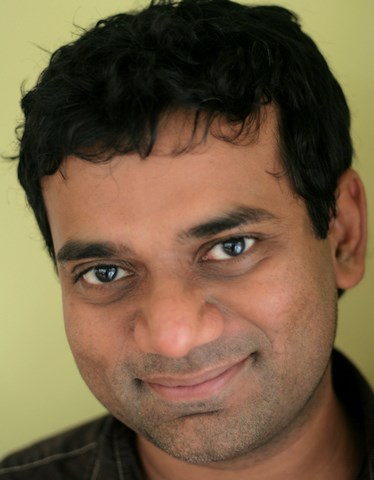Research Interests
Software verification and formal methods; Interpretable, Robust, Trustworthy AI systems; Program Synthesis and Machine Learning; Security and Privacy; Logic and automata theory;
Outreach Interests
ConTraIL project: Privacy-preserving contact tracing project.
See
Whitepaper.
Current research projects and philosophy
My general research philosophy is to turn the theory lens (mainly logic, learning, algorithms)
towards practical computing domains.
I shy away from, for the most part, working on problems
purely motivated by theoretical concerns as well as those entirely
based on heuristics to solve practical problems.
My current research interests are primarily in automating software
verification and building correct-by-design systems,
trustworthy and safe systems that use AI components,
and exploring synergies between machine learning
and program synthesis for building intelligent systems.
Note to prospective students
I am actively looking for Ph.D. students in the following areas. If
you are interested, please apply for the Ph.D. program and write to me
personally.
Trustworthy AI systems: proving safety of systems with ML components; see paper on Perception Contracts in OOPSLA'23
Program Synthesis from natural language specifications
Learning logics: Theoretical and practical algorithms for learning logical concepts from data (see IJCAI 2022, POPL 2022, OOPSLA 2022, OOPSLA 2023).
Logics and reasoning for program verification: especially logics
involving expressive specifications for programs manipulating
quantified specifications and datastructures.
See papers on natural proofs in POPL 2012, PLDI 2013, PLDI 2014, and POPL 2018, work on Frame Logic (ESOP 2020),
and work on inductive lemma synthesis (OOPSLA 22).
Science and practice of building verified distributed systems with significant automation,
like blockchains, bitcoin, and smart contracts (see FMCAD 2019).
In particular, I am interested in theory and practice of refining abstract models to concrete distributed models.
Earlier research Projects
Decidable logics for reasoning with heaps/dynamic data structures (Strand)
Security of web browser extensions (VEX)
Testing concurrent programs (Penelope)
Security of access control (VAC)
Annotation and proof mechanisms for safe concurrency (Accord)
Model-checking abstractions of programs (Getafix)
Decidable automata models (See page on visibly pushdown automata)
Software/tools:
VCDryad - An extension of VCC that provides sound but incomplete automatic
mechanisms against Dryad specifications, a dialect of separation logic.
Dryad - Sound but incomplete mechanism for proving heap-based programs correct
CAV 2013 tool - for learning universally quantified invariants on linear data-structures using quantified data automata
Strand - Decidable logics/SMT solver for reasoning with heaps
Getafix - A boolean model-checker for concurrent and recursive programs
VEX - Static analysis of web-browser extensions for security vulnerabilities
Penelope - A testing tool for concurrent programs
VAC - Verifier of Access Control
JIST - Java Interface Synthesis Tool
Students and Post-doctoral researchers:
Students currently advised:
Angello Astorga (mining program specifications), jointly advised with Tao Xie
Adithya Murali (synergies and learning and reasoning)
Paul Krogmeier (learning logics and DSLs)
Formerly advised:
Students:
Shambwaditya Saha (synthesis, learning, mining specifications)
Pranav Garg (deductive verification; compositional verification)
Edgar Pek (static analysis; points-to analysis)
Francesco Sorrentino (testing concurrent programs)
Xiaokang Qiu
Thesis: Automatic Techniques for Proving Correctness of Heap-Manipulating Programs
Now faculty at Purdue University.
Sruthi Bandhakavi; security of web extensions -- now at Google
Postdocs:
Gennaro Parlato -- now faculty at University of Southampton
Karl Palmskog-- now a postdoc at UT Austin.
Daniel Neider (automated deductiver verification, synthesis, learning, invariant synthesis)
Post-doctoral researcher in the ExCAPE project, jointly at Illinois and UCLA.
-- now at Max Planck Institute
Courses:
Fall 2023:
CS521: Advanced Topics in Programming Systems: Trustworthy AI Systems (with Gagandeep Singh)
Earlier courses
Spring 2023:
CS 474: Logic in Computer Science
Earlier courses
Fall 2022:
CS521: Advanced Topics in Programming Systems: Trustworthy AI Systems (with Gagandeep Singh)
Earlier courses
Service
PC Member: PLDI 2024
PC Member: FSTTCS 2023
PC Member: CONCUR 2023
PC Member: POPL 2022
PC Member: OOPSLA 2022
PC Member: CONCUR 2022
PC Member: CSR 2022
PC Member: LATA 2021
PC Member: LATA 2020
PC Member: POPL 2019
PC Member: ICALP 2019
PC Member: CONCUR 2018
ERC: PLDI 2017
PC Member: Workshop on Automated Deduction for Separation Logics (ADSL), affiliated with LICS and FLOC, 2018.
PC Member: TACAS 2017
PC Member: Highlights of Logic, Automata, and Games, 2017.
PC Member: International Conference on Runtime Verification (RV 2017).
Tutorial on Machine-learning based methods for synthesizing invariants.
, at Computer Aided Verification (CAV), San Fransisco, USA, 2015.
PC Member: ICALP 2016: Int'l Colloq. on Automata Languages and Programming, Rome, Italy.
External Review Committee: CAV 2016: Computer Aided Verification, Toronto, Canada.
Co-chair/Organizer: SYNT 2015: 4th Workshop on Synthesis (associated CAV), San Francisco, USA.
PC Member: Trustworthy Global Computing (TGC), 2015, Madrid, Spain.
ERC Member: PLDI 2015, Portland, Oregon, USA.
PC Member: ACM/IEEE International Conference on
Model Driven Engineering Languages and Systems, 2014, Madrid, Spain.
PC Member: POPL 2015, Mumbai, India.
PC Member: PLDI 2014, Edinburgh, Scotland.
PC Member: CONCUR 2014, Rome, Italy
PC Member: SAS 2014, Munich, Germany
Earlier
2013: PC Member: MFCS, 2013, CAV 2013, Highlights of Logic, Automata, Games
2012: PC Chair: CAV 2012; PC Member: LPAR-18, POPL 2012.
2011: PC Member: CAV 2011, ATVA 2011, FSTTCS 2011.
2010: PC Member: FSTTCS 2010, ATVA 2010,
STACS 2010,
2009: PC member: CAV 2009,
LICS 2009, TIME 2009; Ext Rev Committee: PLDI 2009
2008: PC Member: APLAS 2008, CONCUR 2008.
2007 PC Chair: INFINITY 2007 (with CONCUR); PC Member: ICALP 2007
2006 PC member: ACM SAC.
2005 PC member: FSTTCS 2005, CAV 2005.
GDV 2005 (with CAV'05).
2004 PC member: FORMATS and FTRTFT, 2004
Other Activities: Organized events, invited talks, etc.


